- Home
- Heather Graham
Echoes of Evil Page 27
Echoes of Evil Read online
Page 27
“Oh, she’s okay. I think she’s actually longing to be alone. She’s in the back, with her artwork. Emory is with her,” Sonny said. “I guess it is time for me to go on home.”
She seemed to be hesitating.
“What?”
“Well, nothing. Nothing at all.”
“What? You were thinking something.”
“Just that...well, I think that...someone is a little bit in love with her. Not my place to say, anyway...and there’s nothing going on that’s not appropriate—I’ve been here. I can tell you that. I know that Rosy needs her own time, too. She’s gone out walking, for coffee, down to the water...alone. Maybe we’re kind of smothering her.”
“Oh, I can’t believe that. I’m sure that, when Rosy did want to be alone, she went out for one of her walks. Maybe that made her feel a little closer to Cliff.”
“Maybe. Anyway, I’ve stayed while I’ve thought that I should. Now, it’s time for me to let her live on her own.”
“You know that you’re always welcome at my house, if you want to be close by but feel that you’re crowding Rosy now.”
“Ah, sweetie, I do know that I’m always welcome, and I love you for that.”
“Anytime.”
“I really do need to get home. I think I’ll pack up while you and Emory are talking to Rosy.”
Sonny disappeared into a bedroom. Kody headed on to the back.
Emory was seated in a chair.
Rosy was sketching him.
Emory had been saying something, and Rosy was shushing him—he was messing up her work.
Kody greeted them both with kisses on the cheek—apologizing for the interruption. “I just felt that I need to get by to see you.”
“You’re a love,” Rosy told her. “And it’s fine. We’ll get back to it. How are you doing, Kody? You okay?” Rosy asked anxiously.
“I’m fine. And I’m grateful you’ve had so much company,” she said. She smiled at Emory. “Have you been taking time off work?”
“Helps to be the boss. I can push people around from afar,” Emory said. “And, hey, I just manage money and people. My absence isn’t going to impede the saving of a sea mammal or revolutionizing fish farming.”
Kody smiled at that, mouthing that she was glad he was with Rosy.
“We’ve all been around as much as possible,” Emory assured her.
“I know.”
Rosy looked over from her stool and smiled. “Get out of here, go to work. And I’m getting Sonny out of here, too. I’m so grateful—but I’m a big girl. And I must now manage on my own.”
Kody hugged her. “You’re not on your own. We are all here. Anytime you need us.”
“I’ll go to the museum again soon. I want to see what you have on Cliff—and what I can add.”
“Perfect,” Kody told her.
She waved to Emory and headed to the door; Sonny met her in the hallway. “I’ve got some Miami friends down here, vacationing. I’m meeting them for a late lunch today. But remember, I can pop down anytime you need me.”
“Thank you, Sonny. I’ll keep you up-to-date with everything happening.”
“And if you need help with the wall for the artists...with the Civil War Era room—I’m your man. Woman, I mean. Just call me.”
“Will do, Sonny.”
Kody realized, as she walked to the museum, that she was going to let Colleen manage the front entirely that day.
She thought that someone had been in her house—and someone had been in the museum.
But they hadn’t been in the Artist’s Corner, and they hadn’t been up front—getting into her computer where the information on the Victoria Elizabeth could be found.
They had been in the back.
The storage room...
The place where she had papers, pictures and things that she hadn’t even been able to go through yet.
Today, she was going to find just what it was that someone seemed to be looking for.
17
Jackson Crow was one of the most interesting men Brodie had ever met. He’d been with the FBI for years, and Brodie was aware that a brutal trauma—the loss of his first wife—had sidelined him for a while. He’d been chosen by Adam Harrison to take the lead on the Krewe’s first case in New Orleans.
He was tall, lean, but ruggedly built; his face was a fascinating character study. His father’s Native American heritage was clearly visible in the structure of his cheekbones and his ink-dark straight hair; his eyes were a sharp blue, contrasting vividly with his coloring.
When Brodie and Liam met up with him on the Great Escape, Jackson had been working for hours. But then, after finding Bill and speaking with him, and finally getting out on the water, Brodie realized that it was already well past lunch time. He was glad of the help; even with Liam’s fellow detectives and officers preceding them and gathering all possible suspects and speaking with them, it seemed that he and Liam couldn’t get places fast enough.
They still had nothing. Nothing new at all on Mathilda Sumner. Except that she had somehow cleanly disappeared from her house, leaving behind her wallet and car and anything else that someone might bring with them to go out—even just to the beach.
They stood on the deck speaking with Jackson, bringing him up-to-date. Brodie knew Jackson and was well aware that he had kept up, through Angela, with everything going on. He was thorough; he had the resources to investigate from afar.
It was still good to rehash events with what detail they had. When they had finished the complete update, they moved on to the matter at hand.
“If anyone was dragged out here and kept on this boat, the forensic team hasn’t been able to find any evidence to that effect,” Jackson told Brodie and Liam.
“I don’t think that this boat was used,” Brodie said.
“We can’t clear Ewan as yet,” Liam said quietly.
“I’m not saying that. What I think is that, even if Ewan was involved—murdered Ferrer in cold blood—I don’t think he’d have used his own boat. That it’s here is happenstance, one way or another. Whoever it was took some kind of a small boat from the docks. One person at least had to have been a diver, and, I believe, have a deep-diving certificate—the body was below a hundred feet down. The whole operation had to have taken some time—no diver could have gone down there and just come up without having the bends. Or dying. It was planned from the get-go.”
“But,” Jackson suggested, “the fact that your suspects were seen until midnight doesn’t mean much. The whole operation might have taken three hours, but that could have been at any hour. Say, between 1:00 a.m. and 6:00 or 7:00 a.m.”
“True, and there’s a dilemma,” Liam noted.
“We’re going to move our operation over to the Memory,” Jackson told him. “With your blessing, of course, Detective Beckett.”
“Help me solve this—and I’ll bless you from here to eternity,” Liam told him.
Jackson nodded.
“I’m going to take a look below myself,” Brodie said.
“What are you looking for?” Jackson asked.
“I have no idea. The kind of thing I’ll know when I see.”
He headed belowdecks. The boat was a really nice one. Ewan had spent his life loving the water, so it was only natural.
He introduced himself to the four FBI forensic techs, and promised them he would stay out of their way. He wasn’t even sure what they were looking for, but he went into the master’s cabin—which they had already gone over—and found nothing suspicious. He headed to the guest cabin at the aft.
By then, the techs had gone topside. Brodie stood in the combo galley/living area/dining room and wondered just what the hell he thought he was going to find himself.
He went to the trash; the forensics team had taken any contents.
He shook his head, and
then opened the cabinets.
That’s when he saw what he hadn’t known he was looking for.
It was a cup. A plastic cup that advertised the Drunken Pirate tiki bar.
His heart seemed to miss a beat. Of course, Ewan had been to the bar dozens of times. It might be natural that he had a cup from the tiki hut.
But Brodie took a paper towel and reached up behind the other cups and glasses and slipped his hand around the cup.
Something of a milky color was still stuck to the rim.
Something like a cream drink might well have been in the cup—and stuck if it was poorly or hastily washed.
Something like a cream drink—tainted with almond milk.
* * *
Guitarists.
Brodie seemed to think that it all had something to do with guitars.
But she knew for a fact that her father, Cliff and Arnold Ferrer had each had their own beloved guitars. She knew, through her dad, that each man loved something different about a guitar—she couldn’t believe that anyone was killing anyone over a guitar.
Maybe guitars were worth more than she thought?
She had a box of her father’s belongings that she really wanted to go through. She had everything he’d left. Since her father had been so famous, she’d been careful from the beginning to display what she thought was most relevant.
There was one box that contained all manner of his papers. Some of them receipts, some of them thank-you letters from people he had worked with. Some of them were just notes. When Michael McCoy had written songs, they often came to him at odd times. He’d write music or lyrics on whatever was handy—cocktail napkins, the backs of envelopes—whatever was near him.
She remembered when her dad had died, her mom had tried hard to keep what was important, and clean out what wasn’t. She’d been going to dispose of a number of the crumpled napkins and other brief notes. Kody, devastated, had quietly picked them all up.
She hadn’t been able to let go of anything.
She began to dig through the napkins, lost in thought. She found his initial lyrics for a Bone Island Boys hit titled “War and Peace.” It was a ballad that might have pertained to any war; it was about Johnny coming home from battle, wanting to kiss his wife’s lips—but having no arms to hold her. Wanting to walk by her side, but having no legs with which to stride.
It was a beautiful song—and incredibly sad. The lyrics began with his love for her, and then, bit by bit, the listener learned his condition.
She set the handwritten words down. She would never let go of that crumpled piece of cocktail napkin.
“Hey, Kody!”
She looked up. Colleen asked her, “Do you know how late it is?”
“Ah, closing?”
“Want to come out with me?”
“Um, no. I’m going to stay a bit. Will you do me a big favor, though? Make sure that the place is all locked up.”
“Sure thing. Oh, Bill Worth came by. I told him that you were busy.”
“Good. Thank you. I am busy. Just lock up for me, please?”
“Sure thing.”
Colleen left her alone.
She looked back at the box she was searching.
She picked up the next scrap of paper.
It was one of their best rock songs—not her favorite lyrics, but the song remained a hit. The music her dad had written was just the kind that made people move, want to dance—out on the floor, or just in their chairs.
She smoothed out paper after paper, and then paused, reading one she knew exceptionally well.
“Love in the Sun.”
It was Cliff’s song, she had always thought. But here it was, in her father’s handwriting.
It was sand and sun, til she walked in,
The moment I saw her, I came undone.
I saw it anew, all the sand, all the sun,
Paradise gained, my heart on the run.
The world became my love in the sun,
For paradise comes when love walks in,
And God knows, there is nothing like
My love in the sun.
There were more verses, and she knew them all by heart—she sang the song often enough. She knew that her father had been involved in the creation of the song, but she’d never realized that he had set down the first lyrics.
In a fury, she suddenly dumped the box. And as she quickly shuffled and inspected paper after paper, she found another napkin.
The second verse.
In her father’s handwriting.
“Kody. I didn’t cheat your dad out of anything.”
She nearly jumped sky-high; she had thought she was alone in the back.
Cliff’s ghost was looking at her, appearing extremely worried.
“This is his handwriting—I know it.”
“Kody, I swear, please. Don’t look like that. I would never hurt you! I would die before I’d hurt you.”
She realized that she had been afraid of him when she’d first seen him there. Cliff. She’d been afraid of a ghost—Cliff’s ghost.
“Kody, so help me God, I...I would never hurt you. And I...that song...”
She realized that he was in turmoil. And that it was true he never would hurt her.
“My dad worked it with you, right?”
Cliff’s ghost came closer and sank down into the chair by the desk, looking down at her where she sat on the floor—in her pile of cocktail napkins.
“Your father was truly a good man—an exceptionally good man. He wanted all of his friends—his musician friends—to make a living at their passion.”
“I know that.”
“He did do most of the work on ‘Love in the Sun.’ It should have been his song.”
“He wanted you to have it,” she said softly.
“Yes, he did. That song is what’s kept me floating all these years. It’s the one thing I’ve done that has continually made me an income. Well, that did make me an income. It’s—it’s all I really had to leave Rosy.”
“That’s okay, Cliff.”
“Kody, if you or your mom had ever wanted to...well, you could have taken me to court.”
“Why would we ever do that?”
He smiled. “You wouldn’t. I know that you wouldn’t.”
He looked at her with such affection and love that she smiled. “My dad’s legacy left my mom and me just fine. She keeps the trust fund and gives every year to his charities, just the way that he would have done. Cliff, my dad loved you.”
“I know.” He was silent for a minute. “I wonder if I’ll get to see him soon. You know, Kody, I loved my church. And in my church, we have always believed...well, I do believe there is a heaven. I’m not ready for it yet, apparently, but...”
“Cliff,” she asked, puzzled, “were you aware that you had played with my father and Arnold Ferrer?”
“Ferrer?” he asked.
“There’s a picture on the wall—you, my dad and Arnold Ferrer are in it.”
He shrugged. “Your dad always had us playing with someone. I don’t particularly remember everyone. He was...hell, he just loved to drag anyone in on a set.”
“I wish you remembered,” she told him.
“I’m sorry, Kody. There were so many people—so many years.”
She nodded. She looked back at the napkin in her hands.
“I’d have been nothing without him,” Cliff said. “People didn’t know me or care about me until your dad helped me up, gave me that song.”
“Cliff, you were a wonderful entertainer. Everybody gets a start somewhere. I’m glad that my dad gave you a boost. I loved you both, you know.”
He nodded, and then rose, frowning.
“What?” Kody asked.
“I thought I heard something.”
Kody froze. “What?”
“Oh, I don’t know. Maybe you have one of our Key West roosters running around in here,” he said lightly.
But he was concerned.
Then, they heard a knocking.
Cliff headed out to the hallway. Kody followed him on tiptoe.
Colleen had done a good job of locking up—the lights were out just about everywhere. Only the auxiliary lights were on in the rooms.
She made it to the end of the hallway.
Bill Worth was at the front, banging on the door, calling her name.
She remembered the captain’s words that morning, that he’d seen nothing really wrong, but that it seemed that Rosy’s male friends were maybe being a little too attentive.
She remembered Cliff at the reception following his funeral, watching Bill, saying that he was too close to Rosy.
Bill had been there when Cliff had died.
Oh, God, no. Had he killed Cliff to be with Rosy?
She held still, not going anywhere near the door. He would go away. Even as she stood there, watching him, she was in turmoil.
It was hard to believe, but surely, many murders had been committed in the name of love. If Bill had been secretly worshipping Rosy from afar, he might have gone over the brink.
But that made no sense, not if they were right that the murders committed had all been associated. But maybe they weren’t associated, maybe they were looking for different killers, and maybe...
She turned around and whispered to Cliff.
“I’m going to go out the back.”
He nodded. She started down the hallway, but paused. There was a strange lump on the floor in the Artist’s Corner.
“Cliff,” she whispered.
She couldn’t help herself. She walked into the room, dreading every step.
And then she knew why; the lump on the floor was Colleen Bellamy.
“Colleen!”
She didn’t whisper; she cried out the name. She gathered the girl carefully in her arms, digging in her jeans pocket for her cell phone. But it wasn’t there—she’d left it on the table back in the storage room.
She couldn’t tell if Colleen was dead or alive at first. Then, she thought she felt a faint pulse. She had to leave Colleen and get to the landline on the ticket counter.

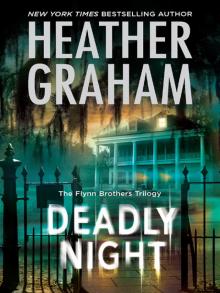 Deadly Night
Deadly Night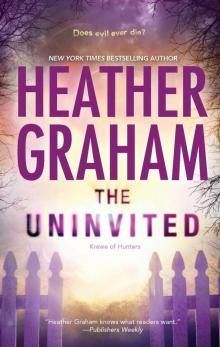 The Uninvited
The Uninvited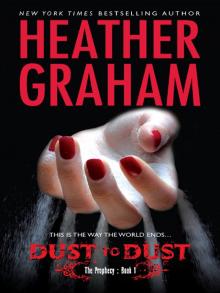 Dust to Dust
Dust to Dust Heart of Evil
Heart of Evil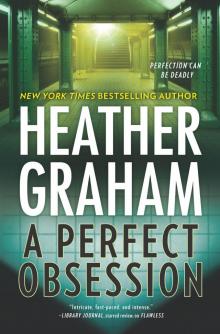 A Perfect Obsession
A Perfect Obsession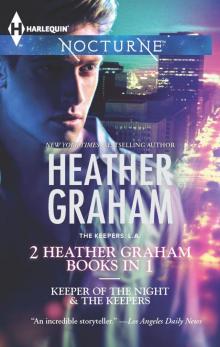 The Keepers
The Keepers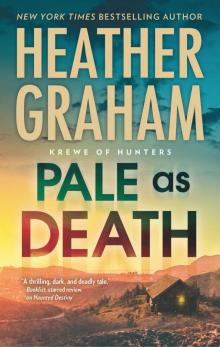 Pale as Death
Pale as Death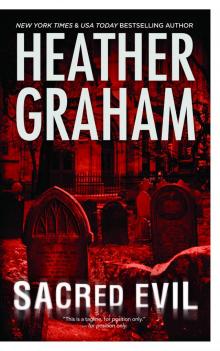 Phantom Evil
Phantom Evil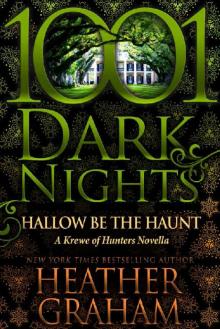 Hallow Be the Haunt
Hallow Be the Haunt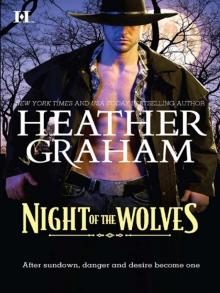 Night of the Wolves
Night of the Wolves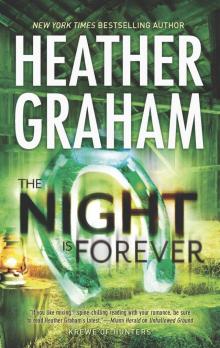 The Night Is Forever
The Night Is Forever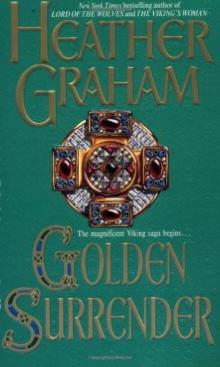 Golden Surrender
Golden Surrender Kiss of Darkness
Kiss of Darkness Beneath a Blood Red Moon
Beneath a Blood Red Moon A Dangerous Game
A Dangerous Game Ghost Shadow
Ghost Shadow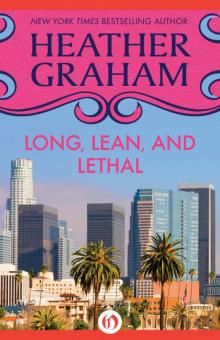 Long, Lean, and Lethal
Long, Lean, and Lethal Fade to Black
Fade to Black The Rising
The Rising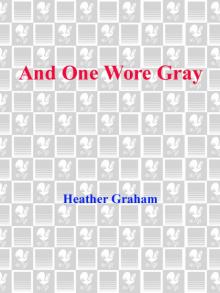 And One Wore Gray
And One Wore Gray Rebel
Rebel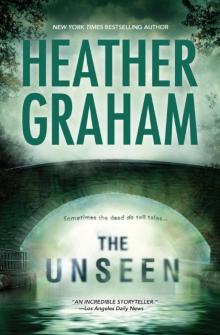 The Unseen
The Unseen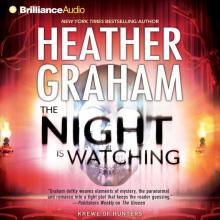 The Night Is Watching
The Night Is Watching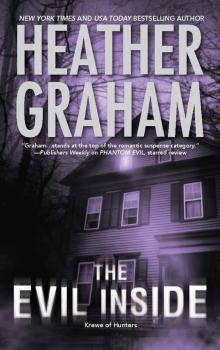 The Evil Inside
The Evil Inside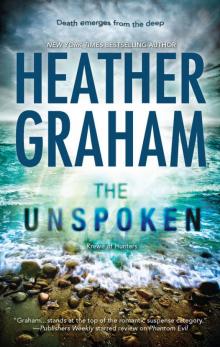 The Unspoken
The Unspoken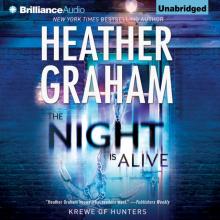 The Night Is Alive
The Night Is Alive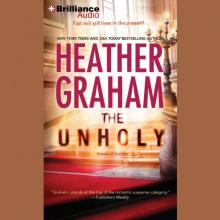 The Unholy
The Unholy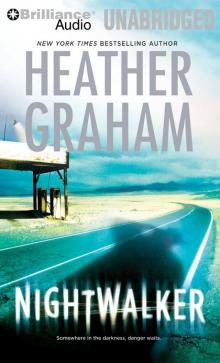 Nightwalker
Nightwalker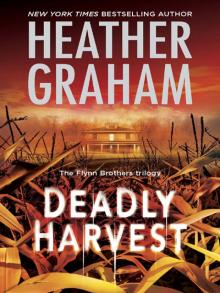 Deadly Harvest
Deadly Harvest An Angel for Christmas
An Angel for Christmas A Pirate's Pleasure
A Pirate's Pleasure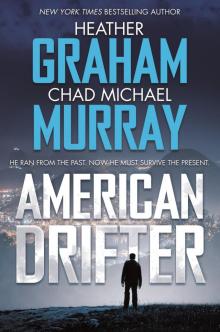 American Drifter
American Drifter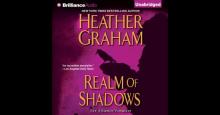 Realm of Shadows
Realm of Shadows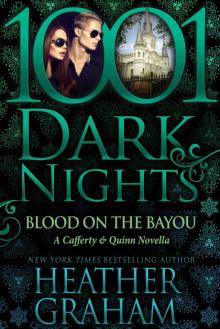 Blood on the Bayou
Blood on the Bayou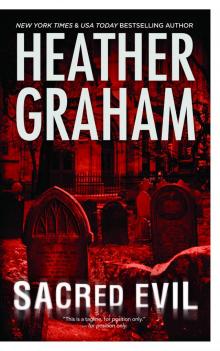 Sacred Evil
Sacred Evil Dying to Have Her
Dying to Have Her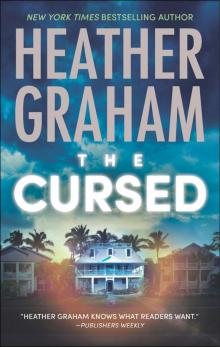 The Cursed
The Cursed Captive
Captive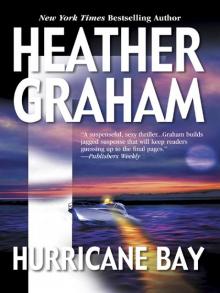 Hurricane Bay
Hurricane Bay Drop Dead Gorgeous
Drop Dead Gorgeous Ghost Memories
Ghost Memories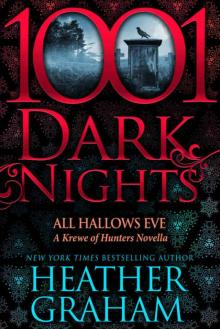 All Hallows Eve
All Hallows Eve Dying Breath
Dying Breath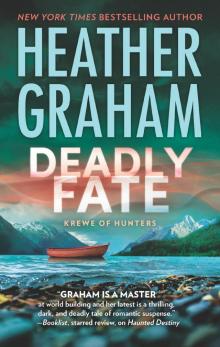 Deadly Fate
Deadly Fate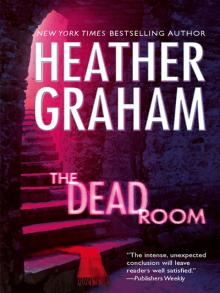 The Dead Room
The Dead Room Lord of the Wolves
Lord of the Wolves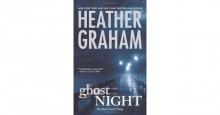 Ghost Night
Ghost Night Ghost Walk
Ghost Walk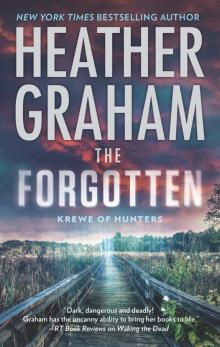 The Forgotten
The Forgotten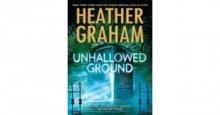 Unhallowed Ground
Unhallowed Ground One Wore Blue
One Wore Blue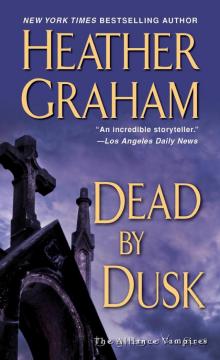 Dead By Dusk
Dead By Dusk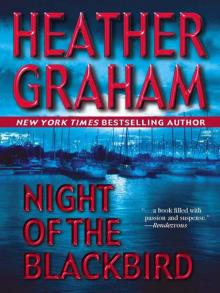 Night of the Blackbird
Night of the Blackbird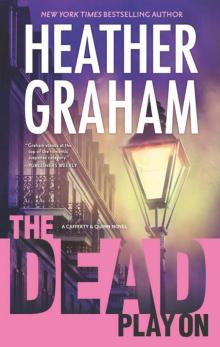 The Dead Play On
The Dead Play On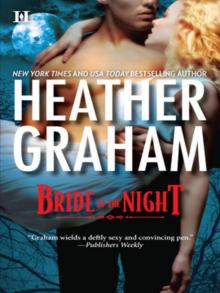 Bride of the Night
Bride of the Night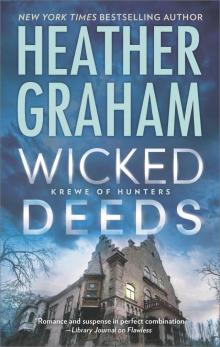 Wicked Deeds
Wicked Deeds The Forbidden
The Forbidden Triumph
Triumph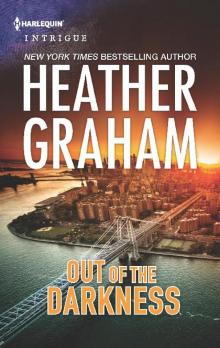 Out of the Darkness
Out of the Darkness Love Not a Rebel
Love Not a Rebel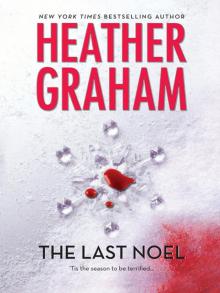 The Last Noel
The Last Noel Tall, Dark, and Deadly
Tall, Dark, and Deadly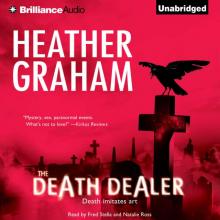 The Death Dealer
The Death Dealer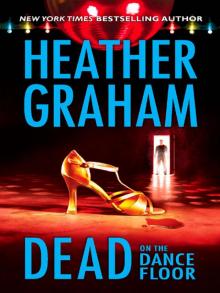 Dead on the Dance Floor
Dead on the Dance Floor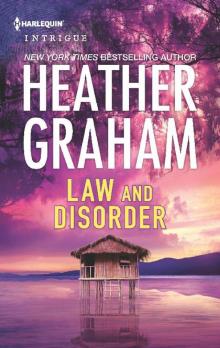 Law and Disorder
Law and Disorder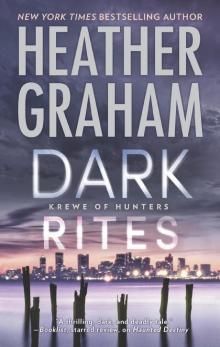 Dark Rites
Dark Rites New Year's Eve
New Year's Eve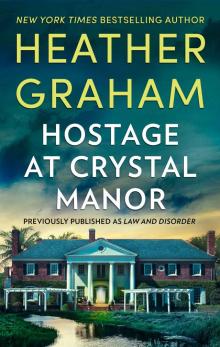 Hostage At Crystal Manor
Hostage At Crystal Manor And One Rode West
And One Rode West Home in Time for Christmas
Home in Time for Christmas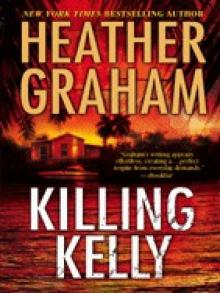 Killing Kelly
Killing Kelly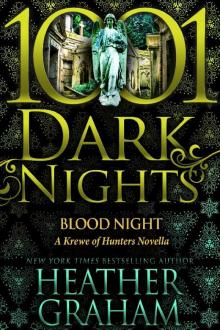 Blood Night
Blood Night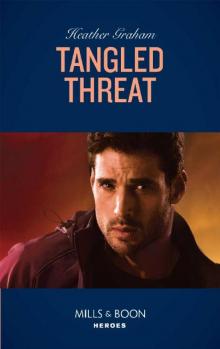 Tangled Threat (Mills & Boon Heroes)
Tangled Threat (Mills & Boon Heroes)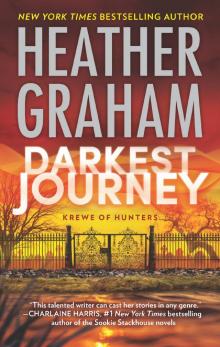 Darkest Journey
Darkest Journey Glory
Glory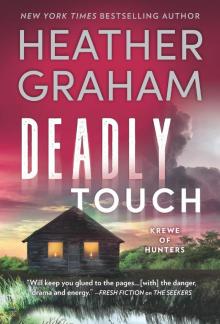 Deadly Touch
Deadly Touch An Unexpected Guest
An Unexpected Guest Night of the Vampires
Night of the Vampires Seize the Wind
Seize the Wind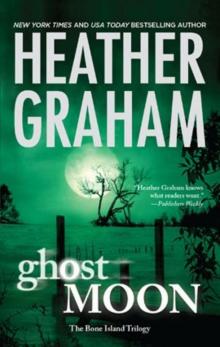 Ghost Moon
Ghost Moon The Vision
The Vision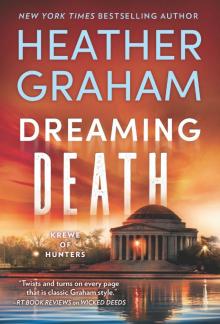 Dreaming Death
Dreaming Death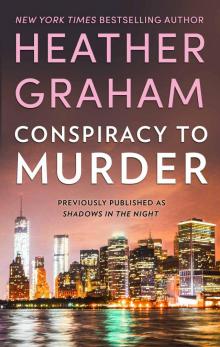 Conspiracy to Murder
Conspiracy to Murder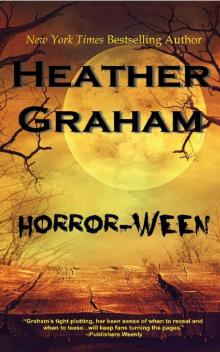 Horror-Ween (Krewe of Hunters)
Horror-Ween (Krewe of Hunters)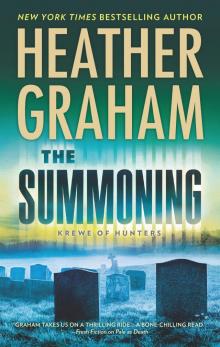 The Summoning
The Summoning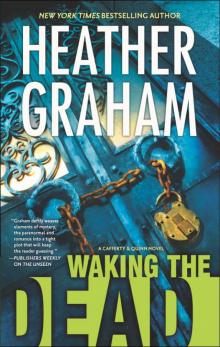 Waking the Dead
Waking the Dead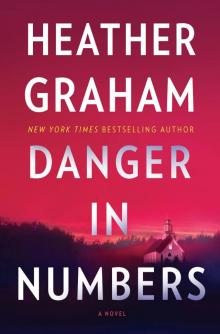 Danger in Numbers
Danger in Numbers The Hidden
The Hidden Sweet Savage Eden
Sweet Savage Eden Tangled Threat ; Suspicious
Tangled Threat ; Suspicious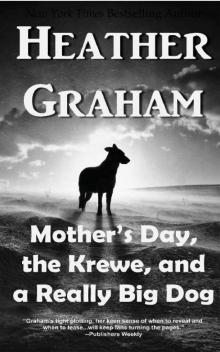 Mother's Day, the Krewe, and a Really Big Dog
Mother's Day, the Krewe, and a Really Big Dog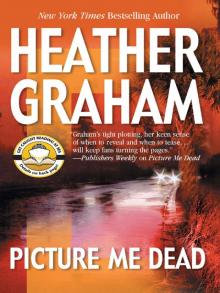 Picture Me Dead
Picture Me Dead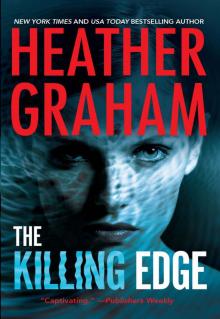 The Killing Edge
The Killing Edge St. Patrick's Day
St. Patrick's Day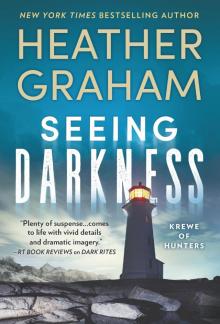 Seeing Darkness
Seeing Darkness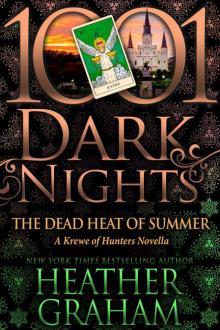 The Dead Heat of Summer: A Krewe of Hunters Novella
The Dead Heat of Summer: A Krewe of Hunters Novella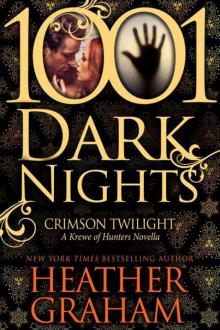 Crimson Twilight
Crimson Twilight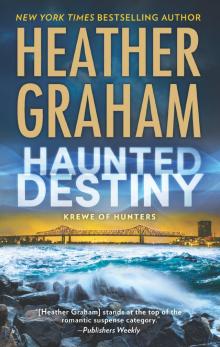 Haunted Destiny
Haunted Destiny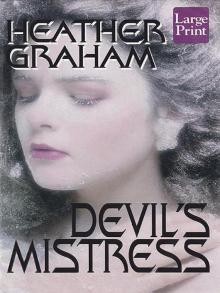 Devil's Mistress
Devil's Mistress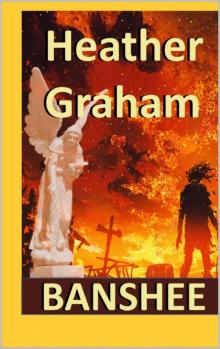 Banshee
Banshee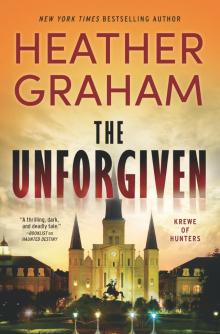 The Unforgiven
The Unforgiven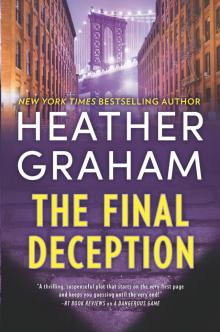 The Final Deception
The Final Deception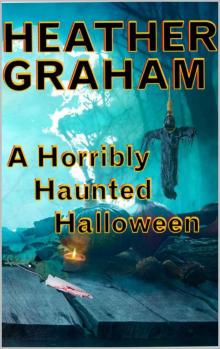 A Horribly Haunted Halloween
A Horribly Haunted Halloween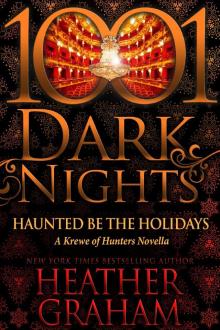 Haunted Be the Holidays
Haunted Be the Holidays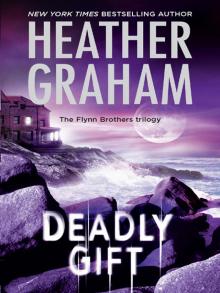 Deadly Gift
Deadly Gift Easter, the Krewe and Another Large White Rabbit
Easter, the Krewe and Another Large White Rabbit Haunted
Haunted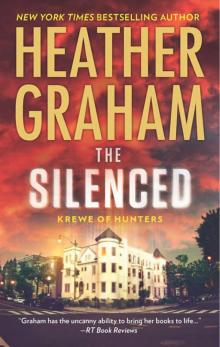 The Silenced
The Silenced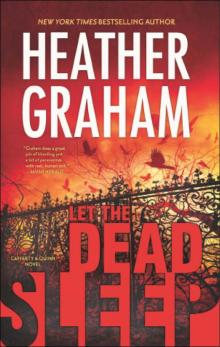 Let the Dead Sleep
Let the Dead Sleep Christmas, the Krewe, and Kenneth
Christmas, the Krewe, and Kenneth Big Easy Evil
Big Easy Evil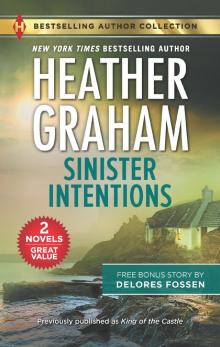 Sinister Intentions & Confiscated Conception
Sinister Intentions & Confiscated Conception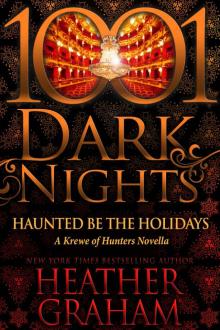 Haunted Be the Holidays: A Krewe of Hunters Novella
Haunted Be the Holidays: A Krewe of Hunters Novella Blood Red
Blood Red A Perilous Eden
A Perilous Eden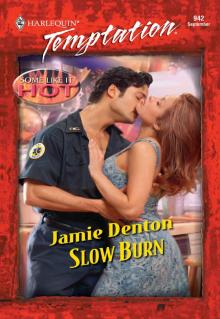 Slow Burn
Slow Burn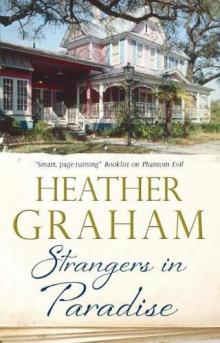 Strangers In Paradise
Strangers In Paradise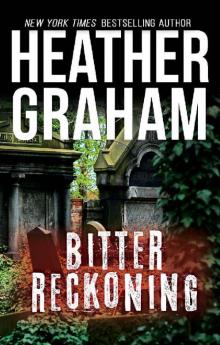 Bitter Reckoning
Bitter Reckoning Krewe of Hunters, Volume 1: Phantom Evil ; Heart of Evil ; Sacred Evil ; The Evil Inside
Krewe of Hunters, Volume 1: Phantom Evil ; Heart of Evil ; Sacred Evil ; The Evil Inside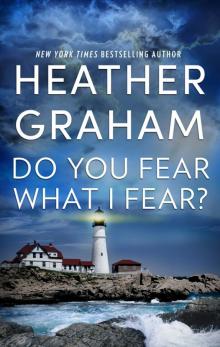 Do You Fear What I Fear?
Do You Fear What I Fear? The Face in the Window
The Face in the Window Krewe of Hunters, Volume 3: The Night Is WatchingThe Night Is AliveThe Night Is Forever
Krewe of Hunters, Volume 3: The Night Is WatchingThe Night Is AliveThe Night Is Forever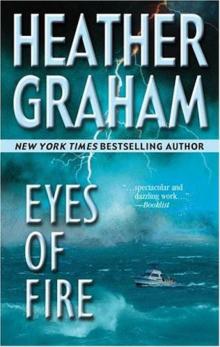 Eyes of Fire
Eyes of Fire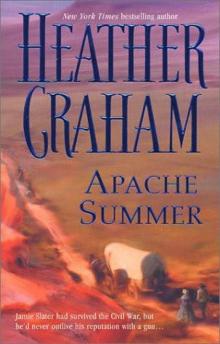 Apache Summer sb-3
Apache Summer sb-3 Sensuous Angel
Sensuous Angel In the Dark
In the Dark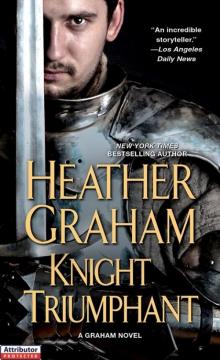 Knight Triumphant
Knight Triumphant Hours to Cherish
Hours to Cherish Tender Deception
Tender Deception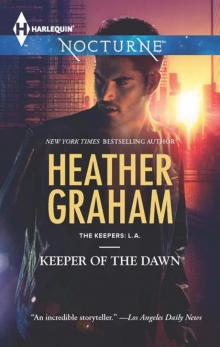 Keeper of the Dawn tkl-4
Keeper of the Dawn tkl-4 Apache Summer
Apache Summer Between Roc and a Hard Place
Between Roc and a Hard Place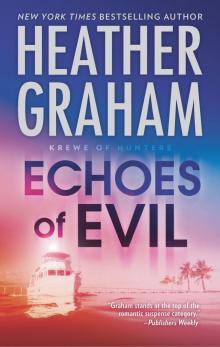 Echoes of Evil
Echoes of Evil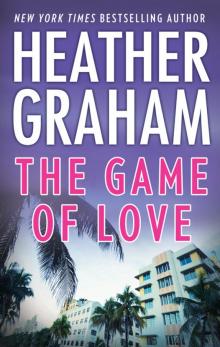 The Game of Love
The Game of Love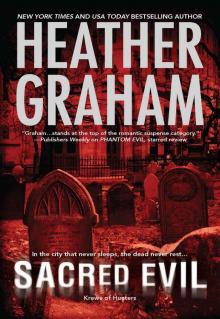 Sacred Evil (Krewe of Hunters)
Sacred Evil (Krewe of Hunters) Bougainvillea
Bougainvillea Tender Taming
Tender Taming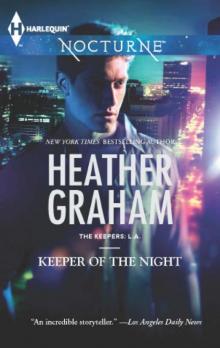 Keeper of the Night (The Keepers: L.A.)
Keeper of the Night (The Keepers: L.A.)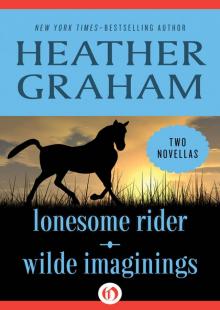 Lonesome Rider and Wilde Imaginings
Lonesome Rider and Wilde Imaginings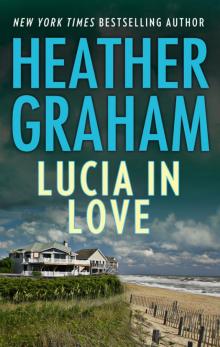 Lucia in Love
Lucia in Love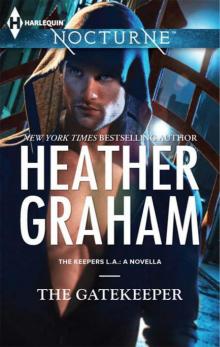 The Gatekeeper
The Gatekeeper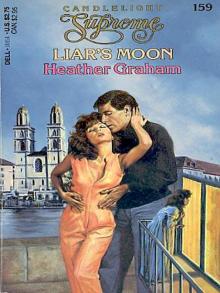 Liar's Moon
Liar's Moon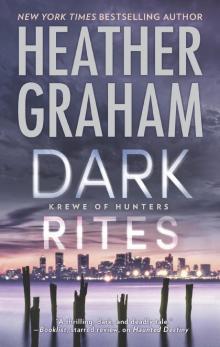 Dark Rites--A Paranormal Romance Novel
Dark Rites--A Paranormal Romance Novel A Season for Love
A Season for Love Krewe of Hunters, Volume 6: Haunted Destiny ; Deadly Fate ; Darkest Journey
Krewe of Hunters, Volume 6: Haunted Destiny ; Deadly Fate ; Darkest Journey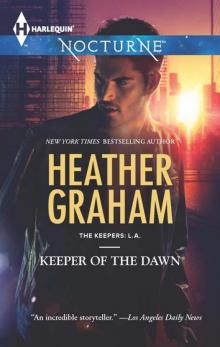 Keeper of the Dawn (The Keepers: L.A.)
Keeper of the Dawn (The Keepers: L.A.)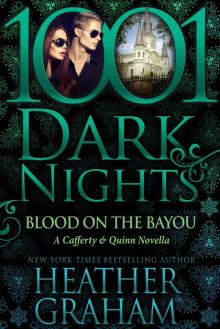 Blood on the Bayou: A Cafferty & Quinn Novella
Blood on the Bayou: A Cafferty & Quinn Novella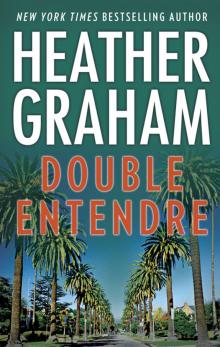 Double Entendre
Double Entendre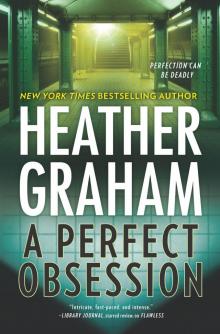 A Perfect Obsession--A Novel of Romantic Suspense
A Perfect Obsession--A Novel of Romantic Suspense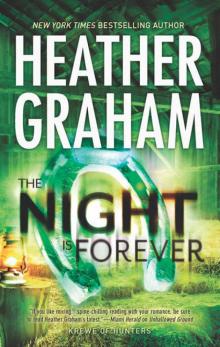 The Night Is Forever koh-11
The Night Is Forever koh-11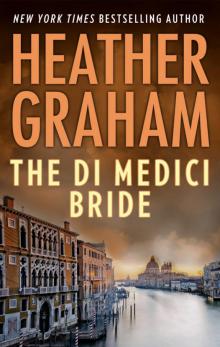 The Di Medici Bride
The Di Medici Bride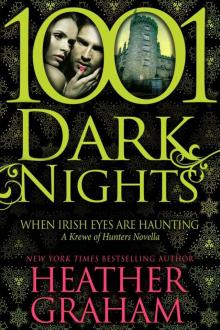 When Irish Eyes Are Haunting: A Krewe of Hunters Novella
When Irish Eyes Are Haunting: A Krewe of Hunters Novella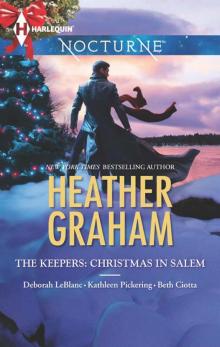 The Keepers: Christmas in Salem: Do You Fear What I Fear?The Fright Before ChristmasUnholy NightStalking in a Winter Wonderland (Harlequin Nocturne)
The Keepers: Christmas in Salem: Do You Fear What I Fear?The Fright Before ChristmasUnholy NightStalking in a Winter Wonderland (Harlequin Nocturne)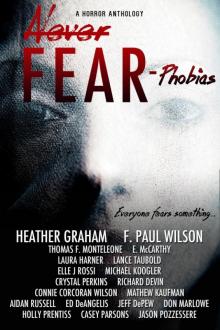 Never Fear
Never Fear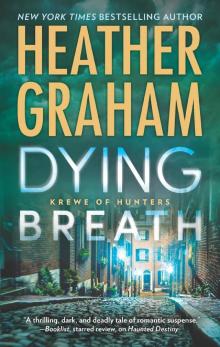 Dying Breath--A Heart-Stopping Novel of Paranormal Romantic Suspense
Dying Breath--A Heart-Stopping Novel of Paranormal Romantic Suspense If Looks Could Kill
If Looks Could Kill This Rough Magic
This Rough Magic Heather Graham's Christmas Treasures
Heather Graham's Christmas Treasures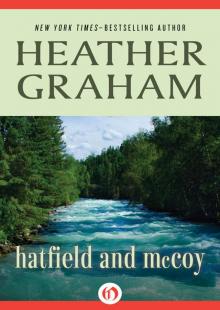 Hatfield and McCoy
Hatfield and McCoy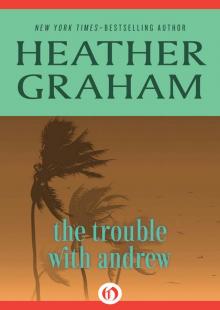 The Trouble with Andrew
The Trouble with Andrew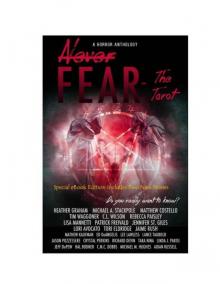 Never Fear - The Tarot: Do You Really Want To Know?
Never Fear - The Tarot: Do You Really Want To Know?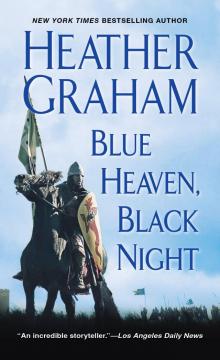 Blue Heaven, Black Night
Blue Heaven, Black Night Forbidden Fire
Forbidden Fire Come the Morning
Come the Morning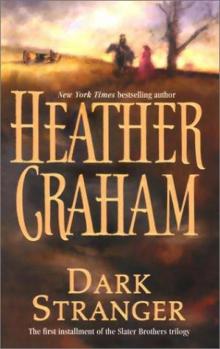 Dark Stranger sb-4
Dark Stranger sb-4 Lie Down in Roses
Lie Down in Roses Red Midnight
Red Midnight Krewe of Hunters Series, Volume 5
Krewe of Hunters Series, Volume 5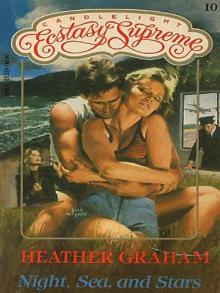 Night, Sea, And Stars
Night, Sea, And Stars Snowfire
Snowfire Quiet Walks the Tiger
Quiet Walks the Tiger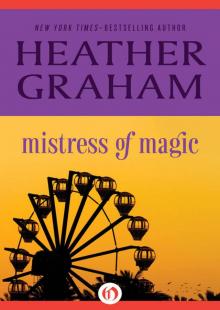 Mistress of Magic
Mistress of Magic For All of Her Life
For All of Her Life Runaway
Runaway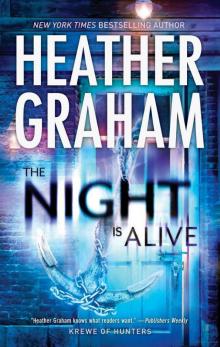 The Night Is Alive koh-10
The Night Is Alive koh-10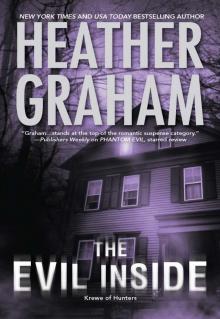 The Evil Inside (Krewe of Hunters)
The Evil Inside (Krewe of Hunters)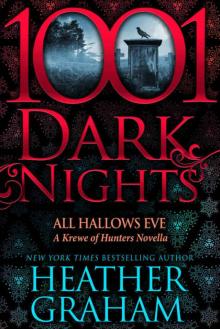 All Hallows Eve: A Krewe of Hunters Novella (1001 Dark Nights)
All Hallows Eve: A Krewe of Hunters Novella (1001 Dark Nights) Tomorrow the Glory
Tomorrow the Glory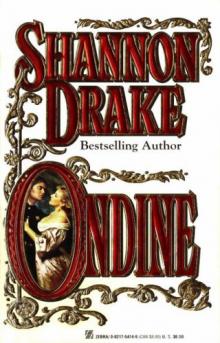 Ondine
Ondine Angel of Mercy & Standoff at Mustang Ridge
Angel of Mercy & Standoff at Mustang Ridge Bride of the Tiger
Bride of the Tiger When Next We Love
When Next We Love Heather Graham Krewe of Hunters Series, Volume 4
Heather Graham Krewe of Hunters Series, Volume 4 A Season of Miracles
A Season of Miracles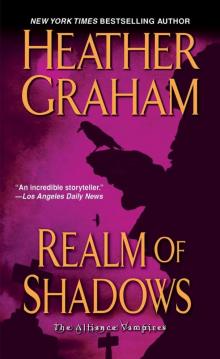 Realm of Shadows (Vampire Alliance)
Realm of Shadows (Vampire Alliance)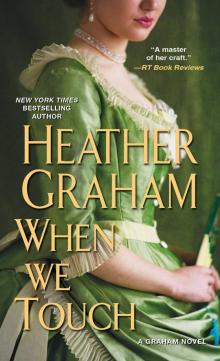 When We Touch
When We Touch Serena's Magic
Serena's Magic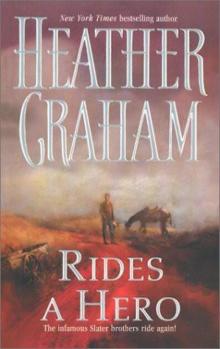 Rides a Hero sb-2
Rides a Hero sb-2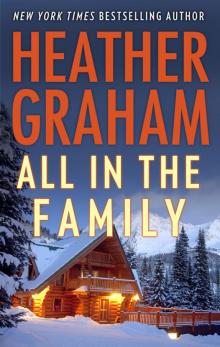 All in the Family
All in the Family Handful of Dreams
Handful of Dreams A Stranger in the Hamptons
A Stranger in the Hamptons Krewe of Hunters, Volume 2: The Unseen ; The Unholy ; The Unspoken ; The Uninvited
Krewe of Hunters, Volume 2: The Unseen ; The Unholy ; The Unspoken ; The Uninvited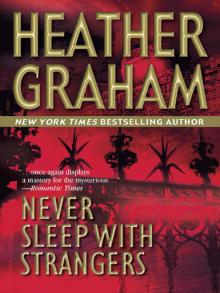 Never Sleep With Strangers
Never Sleep With Strangers Eden's Spell
Eden's Spell A Magical Christmas
A Magical Christmas Forever My Love
Forever My Love King of the Castle
King of the Castle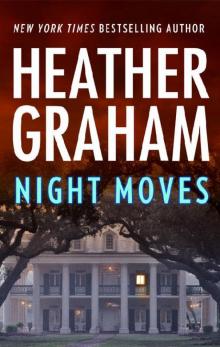 Night Moves (60th Anniversary)
Night Moves (60th Anniversary) The Island
The Island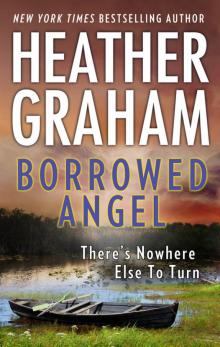 Borrowed Angel
Borrowed Angel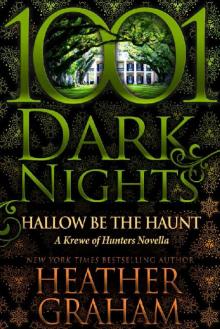 Hallow Be the Haunt: A Krewe of Hunters Novella
Hallow Be the Haunt: A Krewe of Hunters Novella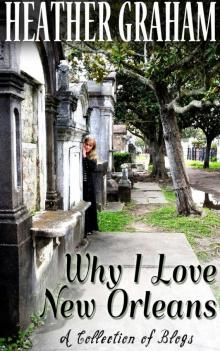 Why I Love New Orleans
Why I Love New Orleans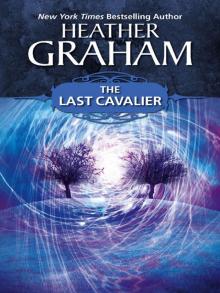 The Last Cavalier
The Last Cavalier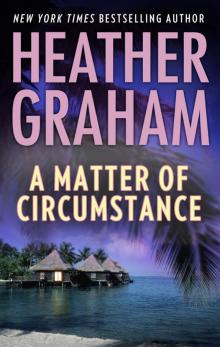 A Matter of Circumstance
A Matter of Circumstance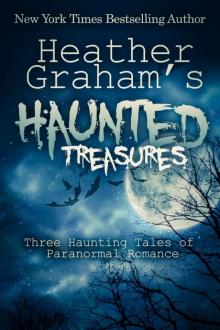 Heather Graham's Haunted Treasures
Heather Graham's Haunted Treasures Tempestuous Eden
Tempestuous Eden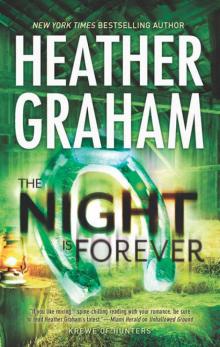 Krewe 11 - The Night Is Forever
Krewe 11 - The Night Is Forever